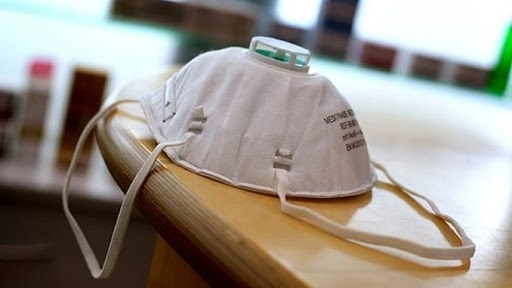
Coronavirus face masks, should general public members wear them in South Africa?
A long debate on the cloth face masks for coronavirus has been carried out in the last weeks. Today, the National Department of Health of South Africa issued its advice into a new press release, especially for what concerns the non-medical personnel.
Coronavirus cloth face masks: what is the advice for general public members?
There has been much debate globally and locally about whether members of the general public should be advised to wear face masks during the COVID-19 pandemic. As the epidemic unfolds, support for the wide use of cloth face-masks, including for people who are not ill, is growing. The main benefit of everyone wearing a face mask is to reduce the amount of Coronavirus (or Influenza virus) being coughed up by those with the infection thereby reducing its spread through droplets.
Since some persons with the Coronavirus may not have symptoms or may not know they are infected, everyone should wear a face mask.
The National Department of Health, therefore, recommends that everyone in South Africa should wear a cloth face mask (also known as a non-medical mask) when in public. Commuters travelling in taxis and other forms of public transport, as well as people spending time in spaces where physical distancing is difficult to practice, are particularly encouraged to wear cloth face-masks.
Cloth face masks for coronavirus: South Africa Dept. of Health advice on COVID-19
The following should be noted: Cloth face masks are recommended as part of respiratory hygiene or etiquette which also includes coughing and sneezing into a bent elbow or a tissue (with proper disposal of the tissue).
The use of cloth face-masks does not reduce the need for other prevention strategies and should never be promoted separately from hand-washing (or sanitising), physical distancing and other components of cough/sneeze hygiene.
The public should not use surgical (medical) or N-95 respirator masks for COVID-19.
Surgical masks and N-95 masks are critical supplies that must be reserved for healthcare workers and other medical first responders. The public is strongly discouraged from using these masks.
Cloth face-masks need to be worn and cleaned properly
The face-mask must cover the nose and mouth completely. Face-masks should not be lowered when speaking, coughing or sneezing.
Cloth face masks for coronavirus: how use a cloth face mask properly?
It is very important that cloth masks are used correctly. Incorrect use might result in users putting themselves at risk of spreading COVID-19.
Guidelines for use are as follows:
- Only use a mask that has been washed and ironed.
- Wash your hands before putting the mask on.
- Place the mask with the correct side facing your face, and ensure that it covers both your nose and mouth properly.
- Tie the strings behind your head, or if you are using elastic bands, make sure these are tight.
- Make sure it fits well. Move it around to get the best fit. Never touch the cloth part.
- Once you have put on the mask, DO NOT TOUCH YOUR FACE again until you take it of.
- When you take it off, undo the ties, and carefully fold the mask inside out, hold it by the strings/elastic and place the mask in a container reserved for washing the cloth mask.
- Wash your hands thoroughly and dry before doing anything else.
- Wash cloth masks with warm soapy water and iron when dry.
- You must have at least two cloth masks per person so you will be able to wash one and have a clean one ready for use.
- Masks should be washed with soap and hot water rinsed thoroughly and ironed.


